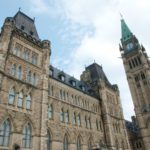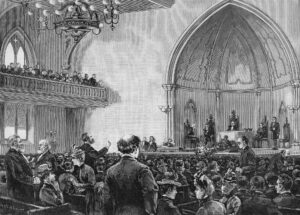Earlier this week, I published an editorial in the National Post responding to an article by Michael Coren claiming that Ontario’s recently implemented lockdown does not restrict freedom of religion or worship. I’ve since had the opportunity to expand on my rebuttal, including on Jamil Jivani’s talk show on Newstalk 1010, and eagerly accepted The Gospel Coalition’s invitation to address one specific issue I raise in the piece: the difference between limiting and infringing a right or freedom.
Some will no doubt find this distinction to be technical, bordering on pedantic. And admittedly, the idea that a right or freedom can be limited (or restricted) but not infringed is one that’s relatively unique to Canadian constitutional law. Understanding what separates these two legal concepts, however, will help to explain much of the tension that is currently being felt throughout Ontario as churches have been effectively forced to forgo in-person assemblies for the foreseeable future.
To appreciate how limitations and restrictions differ from infringements, we have to understand the general constitutional framework of the Canadian Charter of Rights and Freedoms. The Charter guarantees numerous protections, including the fundamental freedoms promised by section 2 (e.g., freedom of conscience and religion, freedom of expression, freedom of peaceful assembly, freedom of association, etc.) and other procedural and legal rights (e.g., the right to life, liberty and security of the person, democratic rights, the right to enter, remain in and leave Canada, etc.).
What makes the Canadian constitution unique is that most (but not all) of these protections are subject under section 1 of the Charter “to such reasonable limits … as can be demonstrably justified in a free and democratic society”. In practice, this means that governments in Canada can limit certain Charter protections (including freedom of religion) provided that they are able to show that these restrictions are justified on the basis of evidence. This standard is a rigorous one. Where a limitation is not justified under section 1, only then should we say that the Charter has been infringed.
I intentionally avoided taking a position in my piece in the Post on whether the current lockdown legally amounts to an infringement of religious freedom. I’ll likely have more to say about this in the days and weeks ahead. In the meantime, we’d do well as Christians to recognize that our province is in the middle of a difficult and serious crisis. Let’s have grace when our brothers and sisters conscientiously disagree with our responses to the lockdown, regardless of whether the source of our disagreement is theologically or legally based.






















